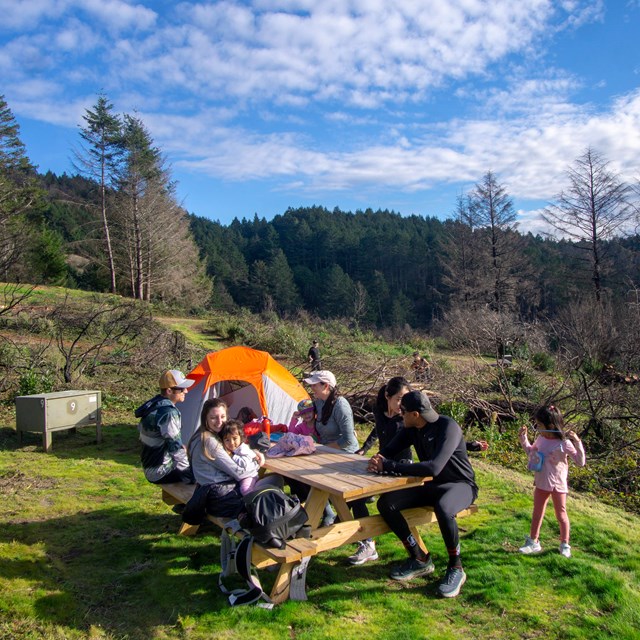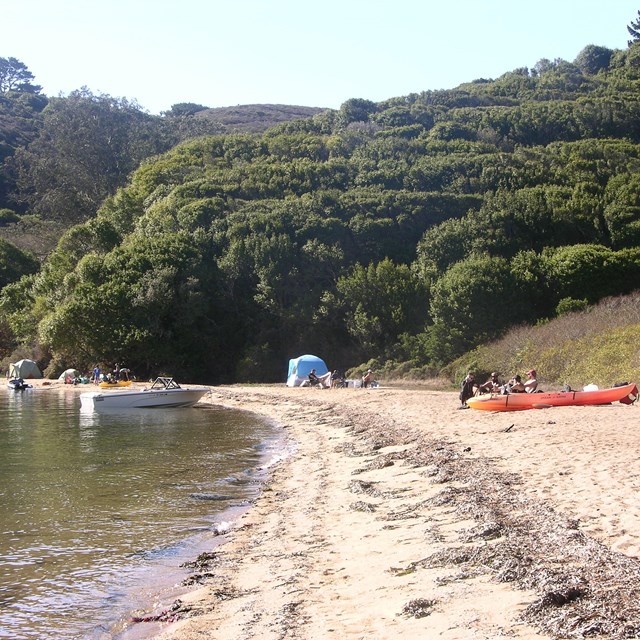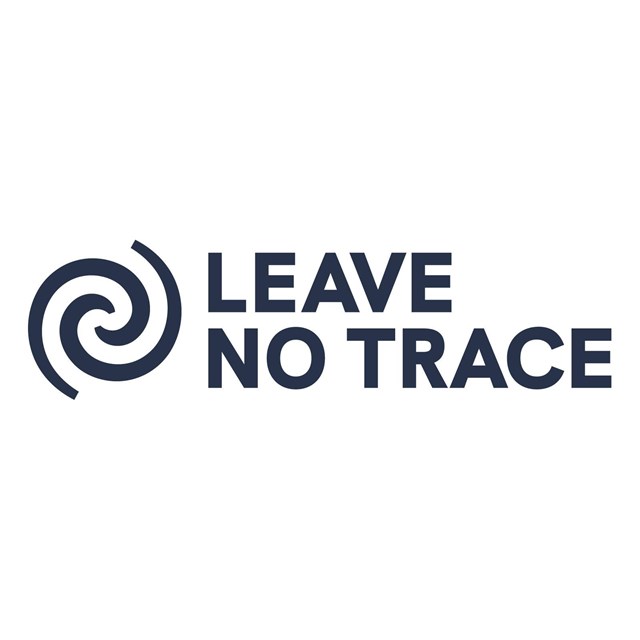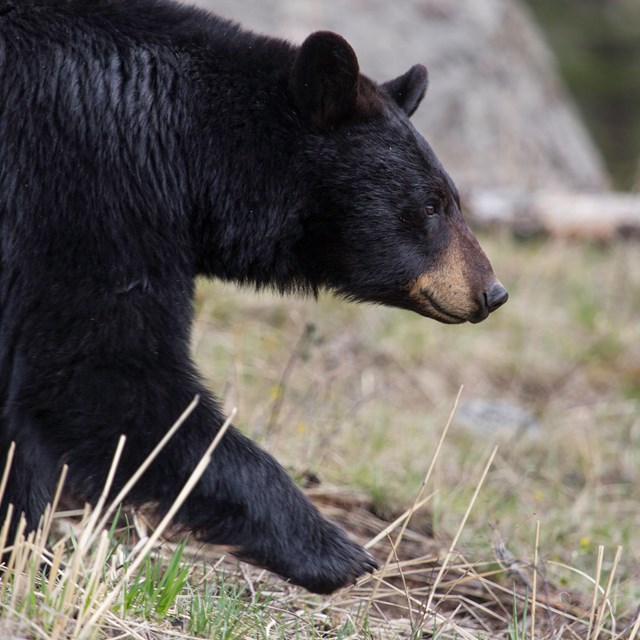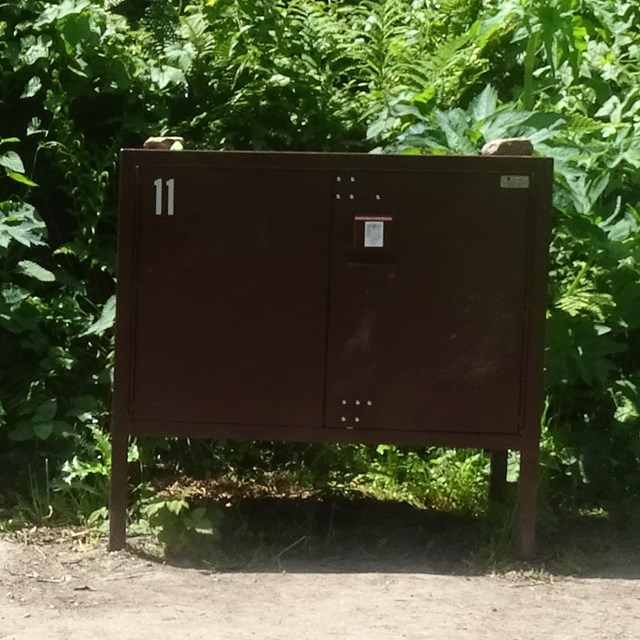Backcountry Camping at Point Reyes National SeashoreVisitors may make online reservations for backcountry and boat-in campsites in the Seashore at Recreation.gov. Point Reyes National Seashore offers year-round backcountry camping along Drakes Bay and among the hills and valleys of the Phillip Burton Wilderness, and boat-in camping on the west shore of Tomales Bay. Because of its location near the metropolitan San Francisco Bay Area, the campsites at Point Reyes are in great demand. You must reserve a permit through Recreation.gov in advance of arrival. Permits may be—and frequently are—reserved three months to the day in advance, so it's best to plan your trip well in advance. The backcountry sites may only be accessed by hiking, riding bicycles, or riding a horse to the campgrounds. The Tomales Bay boat-in "sites" may only be accessed by kayak, canoe, small motorboat, small sailboat, or other small vessel; personal watercraft (e.g., jet skis) are prohibited on Tomales Bay. There is no car or RV camping available in the park. There are, however, many nearby campgrounds, located outside of Point Reyes National Seashore, that do have car and RV camping. Hike-in camping is allowed only in the four established campgrounds; campers may only occupy the numbered site specified on their permit. Boat-in camping is allowed on national park beaches on the west side of Tomales Bay north of Tomales Bay State Park's northern border (i.e., north of Indian Beach and Duck Cove). Otherwise, camping on beaches is prohibited. Our Campgrounds page has descriptions of the various campgrounds. Our Guide to Low Impact Boat Camping page has more information about overnight kayaking and boating on Tomales Bay. Camping rules & regulations, as stated below, must be observed. Please visit our Leave No Trace page to learn how you can help leave the backcountry in a better condition than you found it.
How To Make A Reservation:Camping Permit ReservationsAll camping permit reservations for Point Reyes National Seashore are handled by Recreation.gov. Effective spring of 2021, the six-month reservation window was discontinued and the park offered three different reservation windows (i.e., three-months, two-weeks, and same day). As of July 18, 2024, the park reduced the reservation windows to just three-months and two weeks. There are no longer any sites that are sold as same-day, one-night reservations. Look for the "Site Availability" headers on our Campgrounds page to learn when specific sites become available. Most campsites may be reserved up to three months to the day in advance; the remainder may be reserved up to 14 days to the day in advance. If you are making a reservation as far in advance as possible, you may either reserve a campsite for one or two nights. As an example, on February 12:
Weekends and holidays fill up quickly, especially group sites, so you will want to make your reservations as far in advance as possible. Reservations may be made online at Recreation.gov. Reservations may also be made by phone by calling toll free 877-444-6777 (TDD: 877-833-6777). Call Center Hours of Operation:
Camping fees
Point Reyes National Seashore has no entrance or parking fees, but a printout of your email confirmation (see Camping Permits section below) must be displayed face up on the dashboard of each vehicle remaining overnight at park trailheads. Discounts on Camping Fees:Individuals who have an Interagency Senior Pass, an Interagency Access Pass, a Golden Age, or a Golden Access Pass are eligible for a 50% discount on the camping fee for the 1–6-person permits; discounts are not available for the 7–25-person permits. Holders of these passes should ensure that they enter their pass number in the appropriate field when making a reservation online, or to ensure that one of the first things one tells a call center operator is that you have an eligible pass, e.g., "I would like to make a reservation to camp at Point Reyes National Seashore and I have an Interagency Senior/Access Pass." Individuals who have the following passes are not eligible for discounts on camping fees; these passes only apply to entrance fees.
Additionally, fee waivers are not available for recreational use user fees such as camping. Camping Permits and Parking PassesCampers do not need to check in at the Bear Valley Visitor Center until further notice. And, until further notice, Point Reyes National Seashore no longer has any permits that will be sold at the Bear Valley Visitor Center on a first-come, first-served, same-day, in-person basis. All campsites must be reserved online through Recreation.gov in advance of arrival. All available campsites will be shown as reservable on Recreation.gov. Do not arrive or camp at Point Reyes National Seashore without a reservation. Camping Permits:Camping is by permit only. Print your Recreation.gov confirmation email and be prepared to show it to park rangers on the trail and at your campsite. It is advisable to have an electronic copy on your phone or tablet. Parking Permits:Place a printout of your email confirmation face up on the dashboard of each vehicle remaining overnight at park trailheads. Backpackers are welcome to park their vehicles overnight at the Bear Valley Trailhead, Sky Trailhead, Coast Trailhead, Laguna Trailhead, Limantour Beach South Parking Lot, Five Brooks Trailhead, and/or Palomarin Trailhead. There are no set limits on the number of vehicles per permit, but please carpool as much as possible. Vehicles parked overnight in the National Seashore without a valid and current confirmation printout are subject to citation. If you are starting your hike from Bear Valley, park your vehicle(s) in the gravel trailhead parking lot on the left (east) side of the access road close to the Bear Valley Trailhead. Download the Bear Valley Area Map (504 KB PDF), which shows the location of the trailhead parking lot relative to the Bear Valley Trailhead and the Bear Valley Visitor Center. Cancellations and No ShowsPlease be courteous and cancel any nights of your reservation that you are unable to use. Review Recreation.gov's Rules & Reservation Policies page for more details. Rules & RegulationsPermits are RequiredYou do not need to check in at the Bear Valley Visitor Center. Print out your Recreation.gov confirmation email and be prepared to show it to park rangers on the trail and at your campsite. It is advisable to have an electronic copy on your phone or tablet. Campers without a valid backcountry permit may be cited. Camp in Designated AreasCamping is restricted to the four backpack campgrounds at numbered sites or to National Park beaches on the west side of Tomales Bay. Help keep the campsites small and compact and reduce damage to vegetation surrounding campsites and at Tomales Bay beaches by:
Camping on Beaches is Only Permitted on Tomales Bay Beaches. Camping on Ocean-facing Beaches is Prohibited.Camping on beaches that are not along the western shore of Tomales Bay north of Tomales Bay State Park is prohibited. All beaches along Point Reyes National Seashore are tidally influenced and may be inundated at high tide. Beaches can also be inundated during lower tides by sneaker waves or high surf. Parking and Overnight Parking PassesPlace a printout of your email confirmation face up on the dashboard of each vehicle remaining overnight at park trailheads. If you are starting your hike from Bear Valley, park your vehicle(s) in the gravel parking lot on the left (east) side of the access road close to the Bear Valley Trailhead. (Bear Valley Area Map - 427 KB PDF) Access to Tomales Bay BeachesCampers on Tomales Bay beaches must arrive by boat and may not drive, hike, bike, or ride horses to the beaches. Overnight parking for boat-in campers is prohibited within Point Reyes National Seashore (e.g., along the Pierce Point and L Ranch Roads and at the Marshall Beach Trailhead) and Tomales Bay State Park. Limits on the Number of Nights One Can Camp in the SeashoreCamping is limited to four nights per visit, with a maximum of thirty nights per year. Restrictions on Parties of more than SixWe do not allow groups of more than six people to split up into multiple standard sites within the same campground or acquire multiple permits for the same night. Groups of more than six are restricted to group sites* only, and, similarly, may not purchase more than one site per campground. Everyone associated with your party at a given campground must stay in the same, single campsite. Parties of six or fewer people are not permitted to reserve group sites. * Hike-in campground group sites include Coast 8, Coast 13, Sky 2, Wildcat 1, Wildcat 2, and Wildcat 3. Boat-in group "sites" (i.e., permits) include "Boat-in B Group" for parties of 7 to 14 and "Marshall Beach Group 1," "Marshall Beach Group 2," and "Tomales Beach Group" for parties of 15 to 25. Age LimitsThe minimum age of any camper is 18 unless accompanied by an adult. Permits are not issued to children 17 years of age or younger; an adult must pick up the permit at the Bear Valley Visitor Center and camp with the youth. 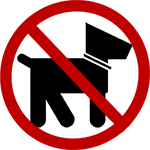
PetsDogs or other pets are prohibited on almost all trails within Point Reyes National Seashore, as well as in the hike-in campgrounds. Pets are also prohibited on all of the NPS-managed beaches along Tomales Bay. Please refer to our Pets pages to learn where you can bring your dog in the Seashore. Service DogsThe prohibition on dogs does not apply to working service dogs, which are allowed on trails, Tomales Bay beaches, and in public buildings. If you have a service dog, please be aware that ticks, poison oak, and wildlife are present in the park. The service animal must be harnessed, leashed (six-foot-long or shorter), or tethered (six-foot-long or shorter) unless these devices interfere with the service animal's work or the person's disability prevents use of these devices. In that case, the person must use voice, signal, or other effective means to maintain control of the animal. Keeping your dog on its leash will help you better ensure that it isn't coming into contact with poison oak or tick-infested vegetation, or at least know when it does. 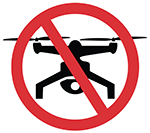
DronesLaunching, landing, or operating a remotely operated aircraft (aka "remotely piloted aircraft," "unmanned aircraft," or "drone") from or on lands and waters administered by the National Park Service within the boundaries of Point Reyes National Seashore is prohibited. If you observe drone use in Point Reyes National Seashore, please call 415-464-5100 x2 x5 or contact staff at the nearest Visitor Center as soon as possible. If you observe drone use in other National Park Service areas or if you find photographs or videos online or elsewhere that were illegally taken within National Park Service areas from drones, you can report the violation to the National Park Service tip line at 888-653-0009 or by email. Glass ContainersPossession of a glass container within 15 meters (50 feet) of any riverbank, lakeshore, or beach, or on the water, or in a vessel is prohibited. This restriction is necessary to reduce the amount of injurious trash in the park and for the protection of visitors who frequent these areas in bare feet. 
Leave No TraceWith increasing visitor use, both day and overnight, it is important to minimize our impacts and Leave No Trace of our visits to wilderness, parks, and other special places. Trips that include awareness and the use of minimum impact practices conserve natural conditions of the outdoors which make the adventure enjoyable and allow others the same experience. Your backcountry permit is a signed contract between you and the National Park Service. It's an agreement to treat these public lands with respect by practicing Leave No Trace (LNT) techniques. Keep in mind that Leave No Trace camping goes beyond following the rules; it requires thoughtful judgement for each situation that comes up. Disposal of Human WasteUse the toilets at the Bear Valley Visitor Center, Five Brooks, or Palomarin trailheads, or the Limantour Beach parking lot before starting your hike. Toilets are also available at Divide Meadow, in addition to at all four hike-in campgrounds. If one needs to urinate or defecate while traveling to a campground and there are no toilets nearby, urinate or defecate at least 60 meters (200 feet or 75 adult paces) from water, camp, or trails.
Campers at the hike-in campgrounds and at Marshall Beach and Tomales Beach are required to use the vault toilets at those locations for the disposal of human waste. Boaters must remove human waste from the park, unless they are camping on Marshall Beach or Tomales Beach. Disposing of human waste in the bay or onto park beaches is prohibited, so campers must bring portable toilets or limit camping to Marshall Beach and Tomales Beach, where vault toilets are available. Water Faucets and Disposal of Grey WaterWater faucets are provided at the four hike-in campgrounds. Boat-in campers will need to bring in any fresh water they will need. The water from the faucets is usually potable, but campers should bring along some means of treating the water in case the campground's water treatment system fails, at which time signage would be posted at the water faucet to alert campers that the water is not potable.
Invasive WeedsTo help control the spread of non-native plants, please:
More Information
Food and Scented Items StorageStore your food and other scented items** properly in the food storage lockers provided at the campsite. There are no food storage lockers on the beaches of Tomales Bay so boat-in campers will need to bring their own portable bear-resistant food storage containers, i.e., bear canisters. Do not leave any food or scented items unattended outside of the locker or stored in your tent. Raccoons, foxes, and skunks are plentiful and aggressive. And, since 2021, black bears appear to have decided to take up residence in Marin County, including Point Reyes. Do not feed wild animals. Keep the doors of the food storage lockers closed at all times, unless you are immediately in front of the locker. Be sure the doors are closed when you leave the campsite to keep animals from getting into the lockers and urinating, defecating, or building nests inside the lockers. Keep and leave a crumb clean campsite. ** Scented items may include, but are not limited to: soap, toothpaste and toothbrushes, toiletries, feminine products, lip balm, deodorant, sunscreen, mosquito repellent, gum, candy, first-aid kits, pots, pans, plates, bowls, cups, forks, spoons, knives, clothes in which one has cooked or eaten, and wash basins (i.e., the kitchen sink). As a general rule, if you put it in your mouth or on your skin or if food comes in contact with it, it should be stored in an bear-resistant food storage container. Fires and FireworksWood and charcoal fires are prohibited in the hike-in campgrounds. Only gas stoves or canned heat may be used for cooking at Coast, Glen, Sky, and Wildcat Campgrounds. Beach FiresPermits are required for beach fires in the park and can be acquired at the Bear Valley Visitor Center. Small fires made out of natural driftwood are only permitted on sandy beaches (below the high tide line, if possible). Downed wood above the beach's vegetation line may not be gathered and burned. Put fires out with water, not sand. Visit our Beach Fires page for more details. Charcoal FiresSince the charcoal grills were removed from the campgrounds in 2022, charcoal fires are now prohibited in the backcountry. Fire BansVisitors planning to cook food over a beach fire or barbecue briquettes should come prepared with an alternative means (e.g., self-contained gas stove) of cooking in the event of a Spare the Air Alert or high, very high or extreme fire danger. FireworksFireworks and other pyrotechnic/incendiary devices are prohibited. Weapons and HuntingAll weapons (including, but not limited to, B-B guns, slingshots, bows and arrows, or any object capable of discharging a projectile—with the exception of firearms), as well as weapons prohibited by the state, are prohibited. Hunting is prohibited. Quiet HoursQuiet hours are from sundown to sunrise. Respect your neighbors, the wilderness, and natural quiet. Check-outCampsites should be left clean. Do not leave anything behind. If garbage and recycling receptacles near the vault toilets are full, pack out your trash. Campers must vacate their campsite by noon on their day of departure, but are welcome to continue hiking and exploring the park after noon. Campers do not need to return to the Bear Valley Visitor Center in order to check out. HorsesMaximum number of horses or pack animals in any campground is eight. Horses are not allowed at Glen Camp. Pack animals and horses must be tied to hitch rails. Multimedia:Campers, hikers, and other visitors to Point Reyes may find our Wilderness Videos page to be of interest. There we feature multiple videos about the Phillip Burton Wilderness and Leave No Trace® outdoor ethics. Contact UsTo make, change, or cancel your camping reservations, log in to your Recreation.gov account, or call the Recreation.gov call center at 1-877-444-6777. Call center staff are available every day of the year from 7 am to 9 pm PT, except on Thanksgiving, Christmas, and New Year's Day. If you have non-emergency, park-specific camping questions that cannot be answered by reviewing the content above or on our Boat-in Camping and Campgrounds pages, please send an email to our Camping Desk. Again, DO NOT email the Camping Desk to make, change, or cancel reservations; contact Recreation.gov. GlossaryBackcountry campground: a campground into which campers hike, or ride a bicycle or a horse, or access by water vessels, as opposed to a campground into which they can drive their vehicles (which would be a frontcountry campground). Boat-in Camping: camping that requires the use of a kayak, canoe, small motorboat, small sailboat, or other small vessel to get to a beach along Tomales Bay where camping is permitted; personal watercraft (e.g., jet skis) are prohibited on Tomales Bay. Camping permit: a document that grants a camper permission to camp on a specific night in a specific hike-in campsite or on one of the beaches on the west side of Tomales Bay north of Tomales Bay State Park's northern boundary. Camping permits issued by Point Reyes National Seashore must be obtained through Recreation.gov in advance or arrival. at the Bear Valley Visitor Center on the campers arrival date. The camper will then need to print their Recreation.gov confirmation email and be prepared to show it to park rangers on the trail and at your campsite or while boating and camping on a Tomales Bay beach. Parking pass/permit: a document that grants a camper permission to park their vehicle between the hours of midnight and 6 am at a trailhead managed by Point Reyes National Seashore. Place a printout of your email confirmation from Recreation.gov face up on the dashboard of each vehicle remaining overnight at park trailheads. Every vehicle parked between midnight and 6 am at a trailhead managed by Point Reyes National Seashore is required to have a parking pass. Citations will be issued to any vehicle without a printout of a confirmation email for a current reservation. Reservation: an arrangement between a camper and the park to have a specific campsite or permit held for the camper's use on a specific night. A potential camper can make a reservation through Recreation.gov from up to three months to the day in advance. |
Last updated: September 5, 2025

